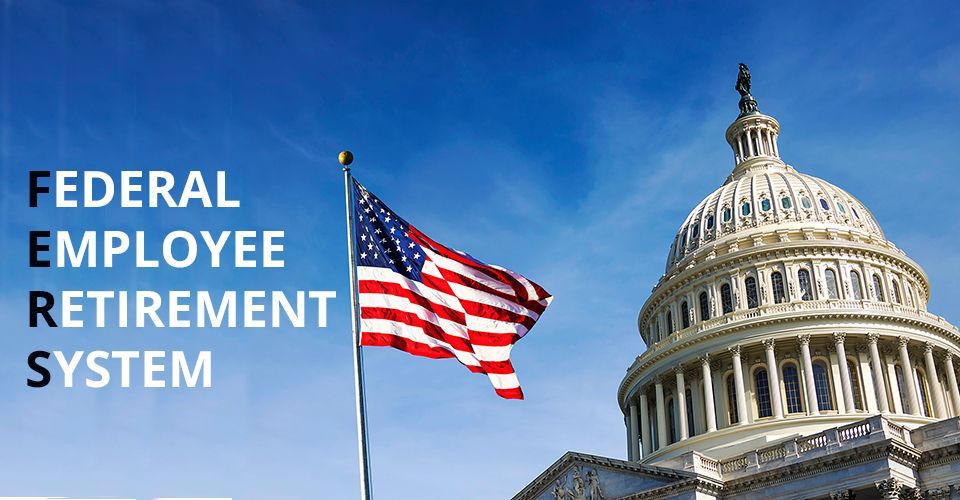
Understanding Federal Service and Age Requirements for Retirement
The Federal Employees Retirement System (FERS) offers a comprehensive retirement plan for U.S. federal employees, ensuring financial security after years of dedicated service. Understanding the retirement eligibility requirements under FERS is crucial for federal employees planning their futures. This blog will elucidate the service and age requirements for general federal employees and delve into the specific criteria for specialized roles such as air traffic controllers, law enforcement officers, and firefighters.
General FERS Retirement Requirements
Immediate Retirement
Immediate retirement under FERS means an employee can start receiving retirement benefits immediately upon leaving federal service. The eligibility requirements vary based on the employee's age and years of service:
- Minimum Retirement Age (MRA) with 30 Years of Service: Employees can retire at their MRA (ranging from 55 to 57, depending on birth year) with at least 30 years of creditable service.
- Age 60 with 20 Years of Service: Employees can retire at age 60 with at least 20 years of creditable service.
- Age 62 with 5 Years of Service: Employees can retire at age 62 with at least 5 years of creditable service.
- MRA with 10 Years of Service: Employees can retire at their MRA with at least 10 years of service; however, their benefits will be reduced by 5% for each year they are under age 62 unless they have 20 years of service and retire at age 60 or older.
Deferred Retirement
Deferred retirement is an option for employees who leave federal service before meeting the age and service requirements for immediate retirement. They can begin receiving retirement benefits at a later age:
- MRA with 10 Years of Service: Benefits are reduced by 5% for each year under age 62 unless the employee has 20 years of service and starts benefits at age 60.
- Age 62 with 5 Years of Service: No reduction in benefits.
Early Retirement
Early retirement options are available under certain conditions, such as agency restructuring or downsizing:
- Voluntary Early Retirement Authority (VERA): Allows retirement at age 50 with 20 years of service or at any age with 25 years of service.
- Discontinued Service Retirement (DSR): Employees can retire at age 50 with 20 years of service or at any age with 25 years of service if their separation is involuntary and not for misconduct.
Special Retirement Provisions for Air Traffic Controllers, Law Enforcement Officers, and Firefighters
Certain federal positions have more stringent retirement requirements due to the demanding nature of their work. These roles include air traffic controllers, law enforcement officers, and firefighters, who are subject to special retirement provisions.
Air Traffic Controllers
Air traffic controllers have a unique retirement system due to the high-stress nature of their job:
- Mandatory Retirement: Air traffic controllers must retire by age 56. However, they can retire earlier if they meet the eligibility criteria.
- Immediate Retirement: Controllers can retire at age 50 with 20 years of service or at any age with 25 years of service. They receive an enhanced annuity calculation, generally 1.7% of their high-3 average salary for the first 20 years of service and 1% for each year thereafter.
- Early Retirement: Under VERA, controllers can retire before age 50 if they have 25 years of service.
Law Enforcement Officers and Firefighters
Law enforcement officers (LEOs) and firefighters also have special retirement provisions due to the physically demanding and high-risk nature of their jobs:
- Mandatory Retirement: LEOs and firefighters are subject to mandatory retirement at age 57 or after 20 years of service if they reach that point first. However, agencies may grant extensions up to age 60.
- Immediate Retirement: LEOs and firefighters can retire at age 50 with 20 years of service or at any age with 25 years of service. Similar to air traffic controllers, their annuity calculation is enhanced, with 1.7% of the high-3 average salary for the first 20 years and 1% for each additional year.
- Early Retirement: Under VERA, LEOs and firefighters can retire before age 50 if they have 25 years of service.
Additional Considerations for Special Category Employees
Enhanced Annuity Calculation
The enhanced annuity calculation for air traffic controllers, law enforcement officers, and firefighters reflects the recognition of their demanding roles. For the first 20 years of service, the annuity is calculated at 1.7% of the employee’s high-3 average salary, which is more generous compared to the standard FERS calculation. For years beyond 20, the standard 1% per year is applied.
Special Retirement Supplement
Special category employees retiring under these provisions may also be eligible for the FERS Special Retirement Supplement. This supplement bridges the gap between retirement and Social Security eligibility, providing additional income until the retiree reaches age 62.
Planning for Retirement
Understanding the retirement requirements under FERS is essential for federal employees to effectively plan their careers and retirement. Here are some key steps to consider:
Assessing Your Eligibility
- Determine Your MRA: Know your MRA based on your birth year, as it plays a crucial role in determining your retirement eligibility.
- Calculate Your Creditable Service: Review your federal service records to ensure all periods of service are accurately documented. This includes military service and any prior federal employment that might count towards your retirement.
- Understand Your Role: If you are an air traffic controller, law enforcement officer, or firefighter, familiarize yourself with the specific retirement provisions and mandatory retirement ages for your role.
Financial Planning
- Estimate Your Annuity: Use the FERS annuity calculator or consult with a retirement specialist to estimate your potential retirement benefits based on your high-3 average salary and years of service.
- Consider the Special Retirement Supplement: For special category employees, understand how the FERS Special Retirement Supplement will impact your income until you reach Social Security eligibility.
- Review Health and Life Insurance: Plan for continued health insurance coverage under the Federal Employees Health Benefits (FEHB) program and consider the Federal Employees’ Group Life Insurance (FEGLI) for your post-retirement needs.
Post-Retirement
- Explore Post-Retirement Employment: Some retirees choose to work part-time or pursue second careers. Be aware of the impact post-retirement employment may have on your FERS annuity and Social Security benefits.
- Volunteering and Hobbies: Consider how you will spend your time in retirement, whether through volunteering, pursuing hobbies, or spending time with family.
Navigating the U.S. FERS employee service and age requirements for retirement can be complex, but with careful planning and a clear understanding of the rules, federal employees can confidently prepare for a secure retirement. Special provisions for air traffic controllers, law enforcement officers, and firefighters acknowledge the unique demands of their roles and provide pathways to earlier retirement with enhanced benefits. By assessing eligibility, planning financially, and exploring post-retirement opportunities, federal employees can ensure a smooth transition from their careers to a fulfilling retirement.
Federal Retirement expert has created a frequently asked questions page on its website to address service and age requirements for retirement as well as other important retirement issues. Visit our FAQ page for answers to other federal retirement questions.
More Featured Articles









